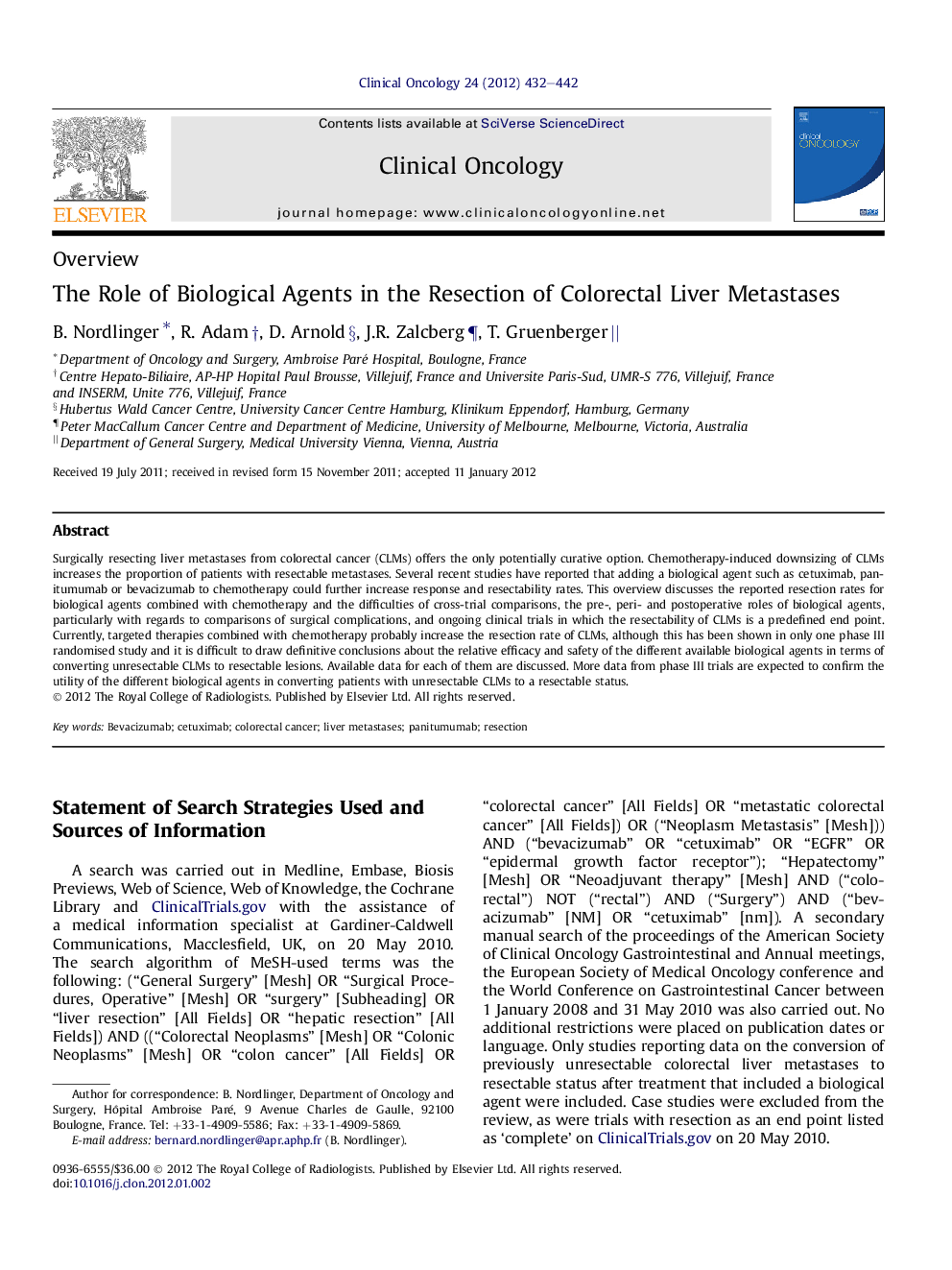| Article ID | Journal | Published Year | Pages | File Type |
|---|---|---|---|---|
| 5699602 | Clinical Oncology | 2012 | 11 Pages |
Abstract
Surgically resecting liver metastases from colorectal cancer (CLMs) offers the only potentially curative option. Chemotherapy-induced downsizing of CLMs increases the proportion of patients with resectable metastases. Several recent studies have reported that adding a biological agent such as cetuximab, panitumumab or bevacizumab to chemotherapy could further increase response and resectability rates. This overview discusses the reported resection rates for biological agents combined with chemotherapy and the difficulties of cross-trial comparisons, the pre-, peri- and postoperative roles of biological agents, particularly with regards to comparisons of surgical complications, and ongoing clinical trials in which the resectability of CLMs is a predefined end point. Currently, targeted therapies combined with chemotherapy probably increase the resection rate of CLMs, although this has been shown in only one phase III randomised study and it is difficult to draw definitive conclusions about the relative efficacy and safety of the different available biological agents in terms of converting unresectable CLMs to resectable lesions. Available data for each of them are discussed. More data from phase III trials are expected to confirm the utility of the different biological agents in converting patients with unresectable CLMs to a resectable status.
Related Topics
Health Sciences
Medicine and Dentistry
Oncology
Authors
B. Nordlinger, R. Adam, D. Arnold, J.R. Zalcberg, T. Gruenberger,
